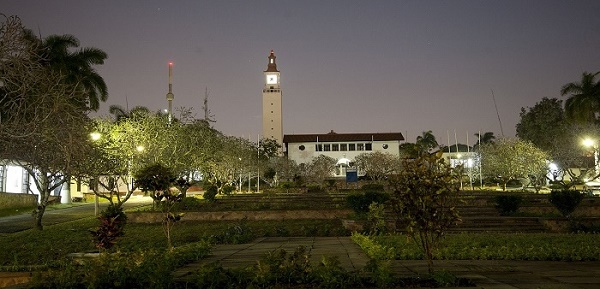University of Ghana international House
Overview

PROFILE
The University of Ghana, the premier university and the largest university in Ghana was founded as the University College of the Gold Coast by Ordinance on August 11, 1948 for the purpose of providing and promoting university education, learning and research.
As a University poised to distinguish itself in the area of research to make an impact at the national and international level, the University has launched a new Strategic Plan. https://www.ug.edu.gh/pad/publication/ug-strategic-plan
This new strategic plan (2014-2024) is intended to consolidate the gains made from the review of the University’s mission and practices and situate these within the context of a very dynamic environment of higher education in Ghana and beyond.
Our Vision
To become a world class research-intensive University over the next decade.
Our Mission
We will create an enabling environment that makes University of Ghana increasingly relevant to national and global development through cutting-edge research as well as high quality teaching and learning.
University of Ghana is run on a collegiate system and comprises the following colleges:
· College of Basic and Applied Sciences https://www.cbas.ug.edu.gh/
· College of Education https://www.coe.ug.edu.gh/
· College of Health Sciences https://www.chs.ug.edu.gh/
· College of Humanities https://www.coh.ug.edu.gh/
In addition, the University has several research institutions and centres for learning and research, including Noguchi Memorial Institute for Medical Research (NMIR), https://www.noguchimedres.org/ Centre for Tropical, Clinical Pharmacology and Therapeutics, Regional Institute for Population Studies https://rips-ug.edu.gh/ Institute for Environmental and Sanitation Studies https://iess.ug.edu.gh/ and the Institute for Statistical, Social and Economic Research. https://isser.edu.gh/
As part of its vision to become a world class research intensive institution, University of Ghana has identified four priority areas where the university will focus and promote international collaboration in research initiatives to enhance the University’s research output. These research areas are:
- Malaria Research
- Trans-disciplinary Research into Climate Change Adaptation
- Enhancing Food Production and Processing
- Development Policy and Poverty Monitoring and Evaluation
As the leading university in Ghana, the University aims to produce the next generation of thought leaders to drive national development. Through our research institutes and other centres of learning and research, faculty members are involved in studies that support policy making for national development, often in collaboration with other international institutions.
There are currently a number of Ghanaian and international institutions that hold affiliation with the University of Ghana. As a leader in tertiary education, the University has established several link agreements with universities in Africa, Europe and North America for student, faculty and staff exchange as well as collaborative research.
The student population is over 38,000 made up of students enrolled on our regular programmes, sandwich programmes, and distance education as well as students from affiliate institutions. Our growing number of international students come from over 70 countries to join either our regular undergraduate and graduate programmes, enroll on our study abroad and other special programmes designed for international students.
The University of Ghana, has over the years built an image as one of the continent’s reputable universities which makes the University of Ghana the first choice for academics, researchers and students.